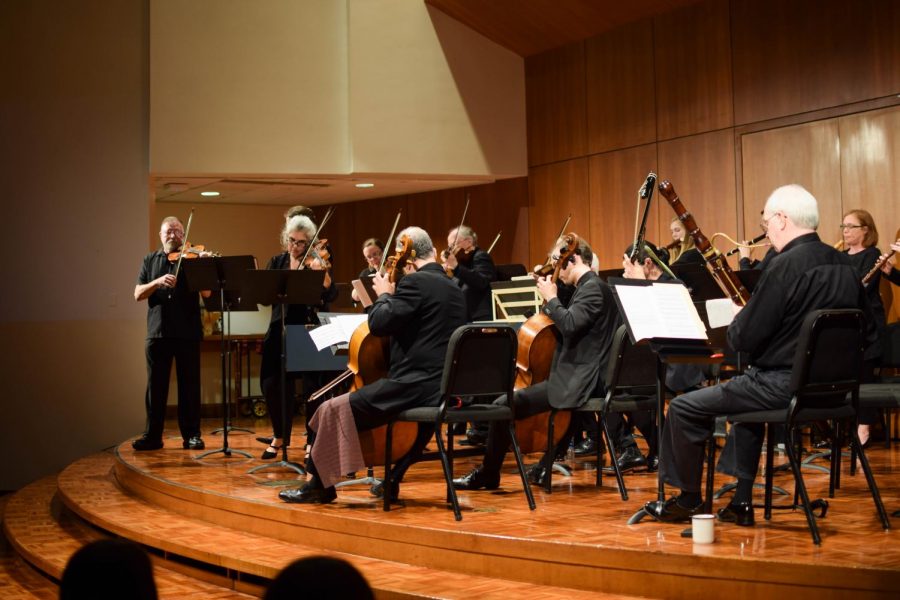‘Water on the Mind’ showcases Baroque flow
Sep 30, 2019
After short applause for the opening remarks, the Cook-Dewitt chapel fell silent and dim, illuminated only by the spotlights trained upon the stage. The orchestra, with each of its musicians clad in black, took its place in the light and began to tune.
Still, no conductor had taken the stage. There was not so much as a podium set before the cadre of musicians. And yet, at a simple nod and a sharp breath from the first violin, the strings broke into a lively song.
“Water has transfixed the imagination and creative artistry of the human race since the earliest days on earth,” read the program of the concert held in the Cook-DeWitt Center on Monday, Sept. 23.
The concert, entitled “Water on the Mind: a Baroque Musical Journey,” comprised four pieces written on the themes of water: its beauty, its constant motion and its occasional ferocity. The performance, which is part of Grand Valley’s Fall Arts Celebration, is a timely complement to the Making Waves Initiative, a movement seeking to educate the university and its community about the vitality of water.
The repertoire included Vivaldi’s concerto La Tempesta di Mare, Telemann’s Hamburger Ebb und Fluth suite, the “Storm Scene” from Marais’ opera Alcyone and lastly Handel’s Water Music. Pieces were performed in the baroque style, as though a small ensemble with no conductor, and with period instruments or “faithful representations” thereof.
The orchestra, which included student, faculty and nationally-renowned guest musicians, was led by virtuosa and acclaimed violinist Ingrid Matthews. Matthews is a soloist with the Toronto Tafelmusik Ensemble and is the founder of the Seattle Baroque Orchestra. According to her biography, she is one of the world’s foremost baroque violinists.
Matthews was invited to participate in the “Water on the Mind” concert by assistant professor and cellist Pablo Mahave-Veglia, who collated and coordinated the performance.
“(Mahave-Veglia) is a great musician and a wonderful colleague, so when he invited me to participate in this project, I knew it would be something special,” Matthews said.
The concert’s accurate-to-period performance of baroque compositions seemed to Matthews an obvious choice for a concert focused on the restlessness of water.
“I love the physicality of the baroque violin, which is without chinrests or shoulder-rests, and is thus in closer contact with the body,” Matthews said.
Indeed, Matthews danced as she played, especially to the ebbing and flowing scales of Telemann’s Hamburger Ebb und Fluth.
Though the hope of the concert was that the audience might walk away with “water on the mind,” Matthews hopes too that the audience left feeling more connected with its humanity.


























